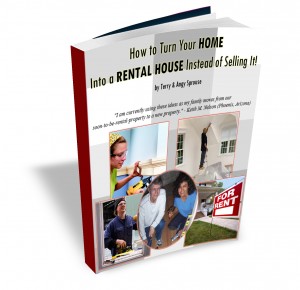There are times when even those of us who are using the “fixer upper and rental house” strategy need to sell a house, despite at one point having sworn that we wouldn’t sell an investment house till the cows came home.
Sometimes we have to readjust our priorities, and as Clint Eastwood/Dirty Harry famously said, but apparently disregarded at the Republican Convention, “a man’s got to know his limitations.”
Maybe it’s because the location is just not that good, or you can’t get good tenants, or maybe the property requires too much attention in terms of frequent repairs. In my case, I sold one of my properties in 2010 because of all the above.
So, what do you do if you want to sell a property and it just won’t sell?
Here are a four things that I suggest you do to sell your property:
1.) Check comparable properties in the area and make sure that you’re property is not over priced. If you want to sell faster, and we all want to sell faster, put the price slightly below other properties.
2.) Offer your house for sale and for rent at the same time. If the offers that come in are too low, you can keep it as a rental for another year or two until home values rise again.
3.) Hire a well established real estate agent to sell you house. When I first started my rental house business, I wanted to do everything myself, including selling my properties. Now, I realize that some things are best left to the experts, and this is one of them. A good real estate agent has a lot of connections, not only with potential buyers but also with other agents. They can attract a lot more buyers to the property than I could.
4.) Offer seller financing. Many buyers won’t qualify for traditional loans because of strict requirements and large down payments. This should allow you to sell for a premium price and get a higher interest rate. (Thanks to Chuck at Landlordinvestor for this tip.)
Now for my semi-weekly roundup of other articles that I find interesting in the blogosphere:
I liked the tips by landlordinvestor on advertising to find tenants entitled Running an ad in a weekly paper.
Over at Louisville Gals Real Estate Blog is a provocative interview with real estate investor James Vermillion.
Fearless Men have another batch of highly motivational quotes in Fearless Men Quotes/ Volume 2.
Jewel had an inspirational article in 10 Lies that Will Keep Your Dreams on the Shelf – #1. If you liked “The Artist’s Way,” you’ll like this.
I could relate to Guilt Induced Frugality at Modest Money.
I was educated by Get an Oil Change Without Getting Ripped Off at Blue Collar Workman.
I relished the article Can Introverts Succeed As Leaders And Entrepreneurs: YES! at Untemplater.
Coming Soon!









